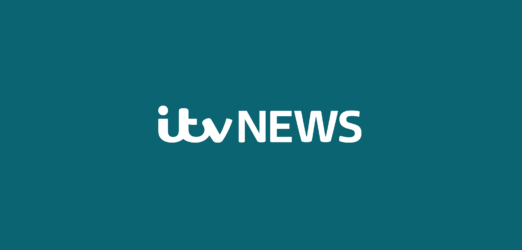When viewers tune in to watch ITV News they already know what’s been going on, according to the programme’s Senior News Editor Arti Lukha. Speaking at our latest virtual Small Talk, she explained they’re not there to find out the facts, they’re turning the television on to have those facts put into some sort of context and analysed.
ITV News is really clear in what it sets out to do. It wants to be engaging, distinctive, provocative and exclusive. That means sourcing and creating the best story lines and pictures.
Despite the evolving requirements of television viewers, ITV News has retained similar audiences for many years. The evening news (at 1830) for example, is still aimed at people coming home from work. The fact many more people work from home hasn’t changed the style of that content. The bulletin is fast-paced, a mix of filmed and edited packages, alongside lives. Story wise there is light and shade, the bulletin beginning with hard news, but ending with more consumer-type stories, sometimes a sport story and often an “and-finally” funny.
News At Ten remains the flagship programme. It’s more analytical than the other bulletins and makes best use of the organisation’s specialist correspondents, experts in areas such as politics, business and health. NAT is also the most likely programme to include foreign news, albeit tailored to fit the audience.
In terms of logistics, the pandemic has been a game changer, in that Zoom, Skype or similar facilitated interviews have been deemed perfectly acceptable. And it sounds like they’re here to stay. Like our PR spokespeople, broadcasters like the speed and convenience of a guest talking to them remotely.
Once the pandemic is over Arti thinks there will be a limited return to on-location and studio-based interviews. Television is often about emotion, content that sticks in viewers’ memories so of course some interviews just work better face to face. Someone talking about the death of a loved one for example is likely to be more expressive when they’re sitting opposite the interviewer because it’s more natural and conversational.
But remote interviews will remain too, which is good news for PR stories. OK they might be the first to be dropped, if another story breaks, but that would be the case regardless of whether a spokesperson had come into Central London or not. Likewise, a PR story can be booked in quickly when suddenly there’s a gap in the schedule. Ultimately it depends on who and what the spokesperson and story are.
Like all news outlets, Covid-19 continues to feature heavily in each and every bulletin. But the essence for ITV News is human interest. There’s government and official handling of the pandemic, which is covered, but at the heart of the coverage is what that means to people. During the first lockdown, Arti recounted, ITV News tried to do a story each day about some who had died – so viewers understood the significance of why we were all in lockdown.
Television coverage has always been the darling of a PR campaign and never more so than now, with viewing figures going through the roof, the effect of course of so many people working from home.
In my view there is huge potential for clients in television news. Although difficult it’s possible to get coverage for some PR generated stories and launches; offering more potential however is the appetite for expert opinion. We call this news hi-jacking – finding a story in the news agenda on which one of our clients can comment. Now is a golden age for television PR.



